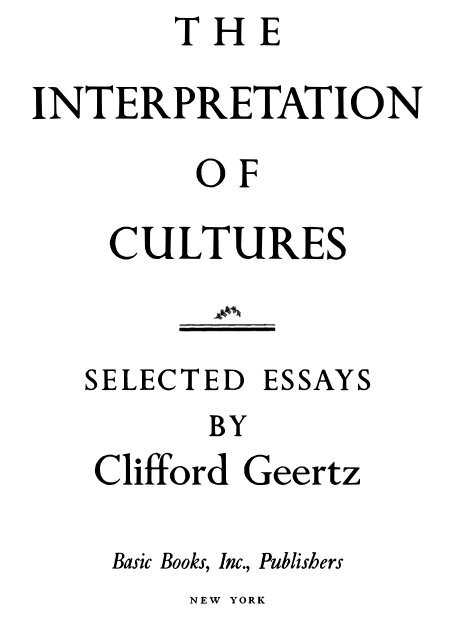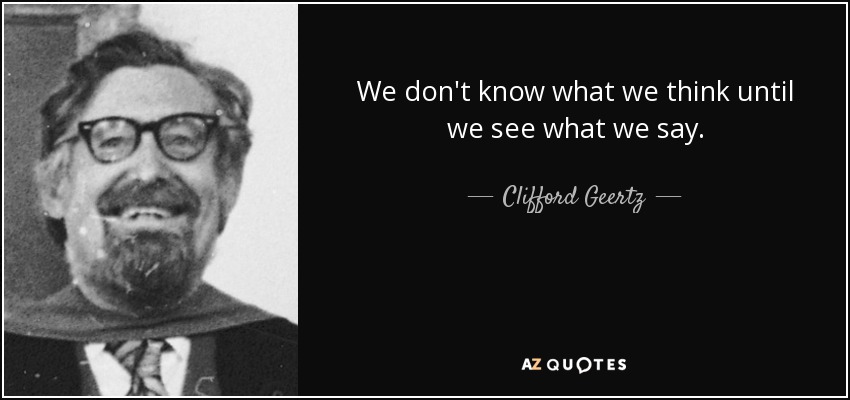


In 1973, he published The Interpretation of Cultures, which collected essays Geertz had published throughout the 1960s.

In 1970, Geertz left Chicago to become professor of social science at the Institute for Advanced Study in Princeton, New Jersey from 1970 to 2000, then as emeritus professor. In the mid-1960s, he shifted course and began a new research project in Morocco that resulted in several publications, including Islam Observed (1968), which compared Indonesia and Morocco. In this period Geertz expanded his focus on Indonesia to include both Java and Bali and produced three books, including Religion of Java (1960), Agricultural Involution (1963), and Peddlers and Princes (also 1963). He taught or held fellowships at a number of schools before joining the faculty of the anthropology department at the University of Chicago in 1960. Following his divorce from anthropologist Hildred Geertz, his first wife, he married Karen Blu, another anthropologist. He was a member of the American Academy of Arts and Sciences, the American Philosophical Society, and the United States National Academy of Sciences. Throughout his life, Geertz received honorary doctorate degrees from around fifteen colleges and universities, including Harvard, Cambridge, and the University of Chicago as well as awards such as the Association for Asian Studies' (AAS) 1987 Award for Distinguished Contributions to Asian Studies. : 8–9Īfter finishing his thesis, Geertz returned to Indonesia, in Bali and Sumatra, : 10 after which he would receive his PhD in 1956 with a dissertation entitled Religion in Modjokuto: A Study of Ritual Belief In A Complex Society. He also studied the religious life of a small, upcountry town for two-and-a-half years, living with a railroad laborer's family.

Geertz conducted his first long-term fieldwork together with his wife, Hildred, in Java, Indonesia, a project funded by the Ford Foundation and the Massachusetts Institute of Technology. Geertz worked with Parsons, as well as Clyde Kluckhohn, and was trained as an anthropologist. When in Harvard University, he studied at the Department of Social Relations with an interdisciplinary program led by Talcott Parsons. Geertz received a bachelor of arts in philosophy from Antioch College at Yellow Springs, Ohio in 1950 and a doctor of philosophy in anthropology from Harvard University in 1956. He served in the US Navy in World War II from 1943 to 1945. Geertz was born in San Francisco on August 23, 1926. the single most influential cultural anthropologist in the United States." He served until his death as professor emeritus at the Institute for Advanced Study, Princeton. Clifford James Geertz ( / ɡ ɜːr t s/ ( listen) Aug– October 30, 2006) was an American anthropologist who is remembered mostly for his strong support for and influence on the practice of symbolic anthropology and who was considered "for three decades.


 0 kommentar(er)
0 kommentar(er)
